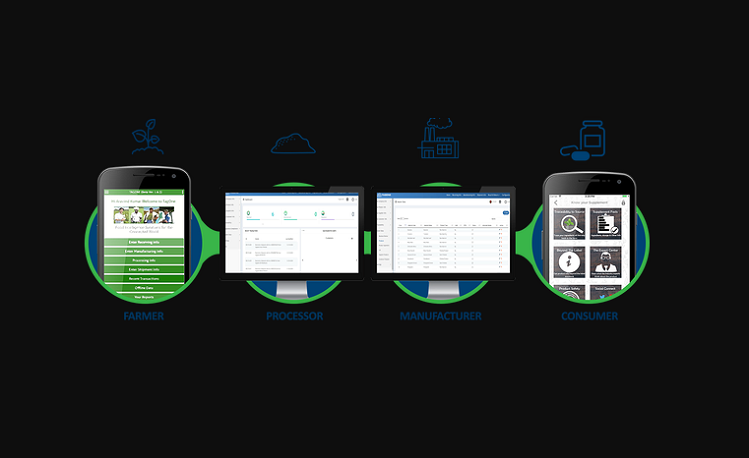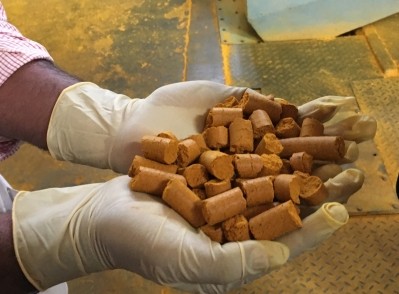Editor's Spotlight
TagOne co-founder: ‘Our pipeline has grown, because there are enough good companies out there’

Trinanjan Gupta and business partner Manish Gupta founded TagOne in 2016 with the goal of providing companies who make dietary supplements (or natural products, as it is known in some parts of the English-speaking world) to meet their transparency goals.
In short, TagOne offers a technology suite to help customers capture transaction data across the supply chain—from growers and farmers to wholesalers, importers to manufacturers, brand owners to distributors.
This is done using several of their software. TagOne: Enterprise, for example, is a cloud-based software so companies can streamline their supply chain operations, making sure that there is master documentation of every ingredient's source and journey throughout the supply chain. This also includes track and trace tools using unique product identifiers and lot numbers. Another tool is TagOne: Harvest, developed for Android mobile phones that allow farmers on the field to document a crop's journey from harvest to processing.
Before TagOne, both Guptas worked for enterprise software giant SAP, where they worked with many pharmaceutical company customers in an area called track and trace. “This means supply chain traceability in the pharma space,” Trinanjan Gupta, or TJ, told us.
Their work involved generating serial numbers used to track medical products or prescription drugs in the pharma industry.
They decided to leave SAP at the end of 2012. “We had a lot of interesting ideas we wanted to use in the practical world, which was obviously not possible in a big global company like SAP,” he said. They established DreamWeaver LLC—TagOne’s parent company—a consulting firm in track and trace for the pharma industry which is now one of SAP’s top global partners, with customers like Johnson and Johnson and Bristol-Myers Squibb.
Foraying into supplements
In 2016, Gupta met some folks from the supplement industry.
“We started talking about what I do, what they did, this was at a party in New Jersey, I can remember it vividly,” he recalled.
“Some gentlemen, they jumped on me and said, ‘You know, track and trace seems something very valid for the supplement industry.”
“I was very curious to understand what they meant, because their point was that the supplement industry was facing a lot of supply chain challenges when it comes to transparency, and they weren’t able to address many of these challenges around getting information about what came from where, control over quality, control over disciplined supply chain, and so forth,” he added.
How pharma and supplements differ
Catering to the supplement industry meant that DreamWeaver LLC needed to tailor its services, it couldn’t simply apply what it has been doing for pharmaceutical industry customers to dietary supplement industry customers. That's how TagOne was formed under DreamWeaver LLC.
“In simple terms, the supply source is finite in natural supplements and in the natural products industry,” he said.
“It means that the ingredient, or the raw material, is coming from some farm somewhere in the world. It’s being either farmed or it’s being wildcrafted, depending on what ingredient you’re talking about.”
In contrast, pharmaceutical ingredients are made using “controlled production.” “If I want to increase production from, let’s say one ton of active ingredient to five tons, I can do it in pharma. I can do it in a factory because I need certain chemicals which I need to procure, it’s all lab procured.”
But in supplements, one can’t simply go from 1,000 tons of turmeric in a year up to 2,000 to meet demand. “If someone can, then there’s something wrong, like adulteration by adding yellow powder to it. Or they’re not going through the entire 8-9 months cycle which is what it will take for turmeric to grow,” he added.
Working with the industry
Gupta admitted that when he first started working closer with the natural products industry, he expected more people to react positively about the company than he has seen.
“One thing which bothered me about the natural products industry, I see a lot of corners being cut, and it’s because of a lot of reasons, there is easy money to be made because it’s an industry which has created a brand and created a value in the market when it comes to natural healing and people believing it,” he said.
“At the same time, there are excellent companies out there who are doing the right thing, some are doing well some are not doing well because they are getting caught in price,” he added.
TagOne is optimistic about the future of transparency in the dietary supplements industry.
“The last six months, our pipeline has grown, because there are enough good companies and like-minded people out there. They are the people we believe will create a new standard around transparency.”










